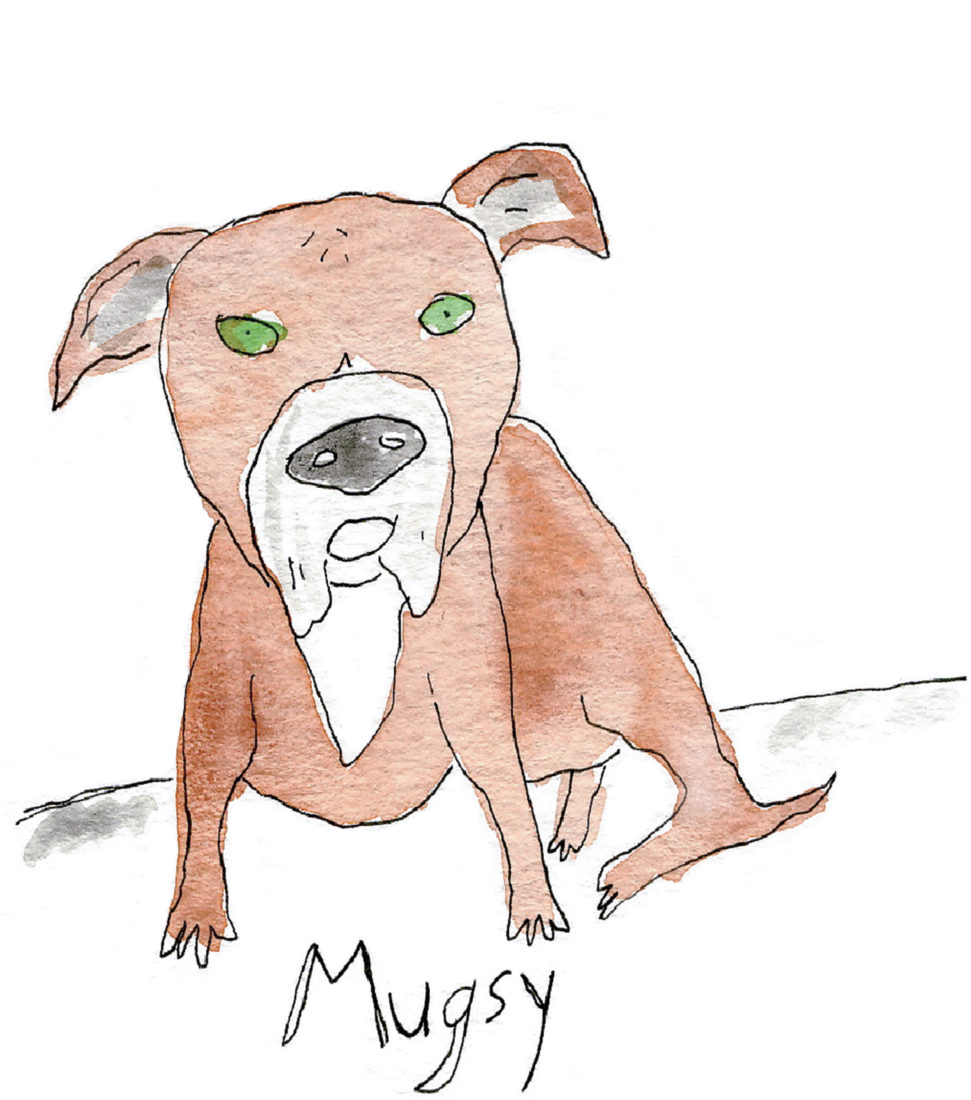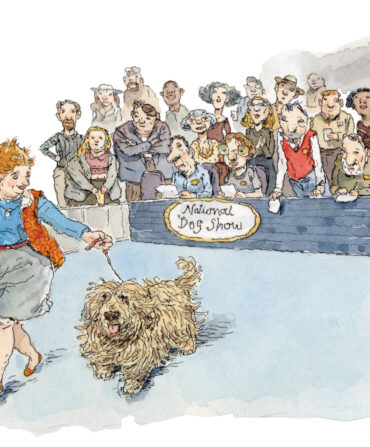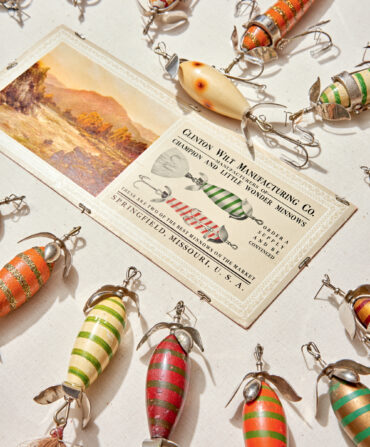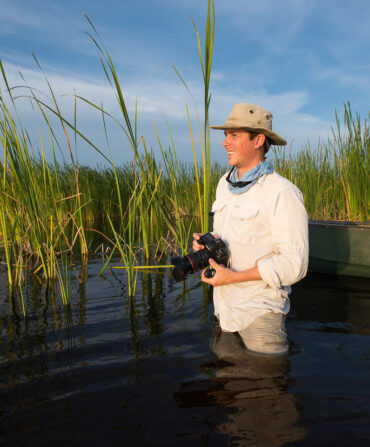Mugsy was a boxer. Resonating within that sentence is the simplicity of the perfect name. The same words appear to mean two completely different things. They could mean Mugsy was a breed of dog called a boxer. But I could also be referring to a man named Mugsy whose profession was that of being a boxer, because Mugsy is the kind of name we would expect a boxer to have—Mugsy, Rocky, Jake. That sort of thing. The name Mugsy works because a boxer looks like a boxer, and in that sense it’s easy to imagine what a dog like that might be named. One could even claim it’s clichéd, but I think the only person who would claim that is the kind of person who would begin a sentence with the words one could.
I was in single digits when we had Mugsy. Mugsy chased cars with a joyful, indefatigable single-mindedness. Lots of dogs do, of course, but Mugsy actually caught them and clung to their still-turning tires with teeth that somehow never seemed the worse for wear. He wasn’t hit so much as he was slammed into the road. Repeatedly. He’d wander back home all bloody smiles. I was heartbroken when I discovered he’d been sent away to live on an old lady’s farm out in the country…where I believe he is to this day.
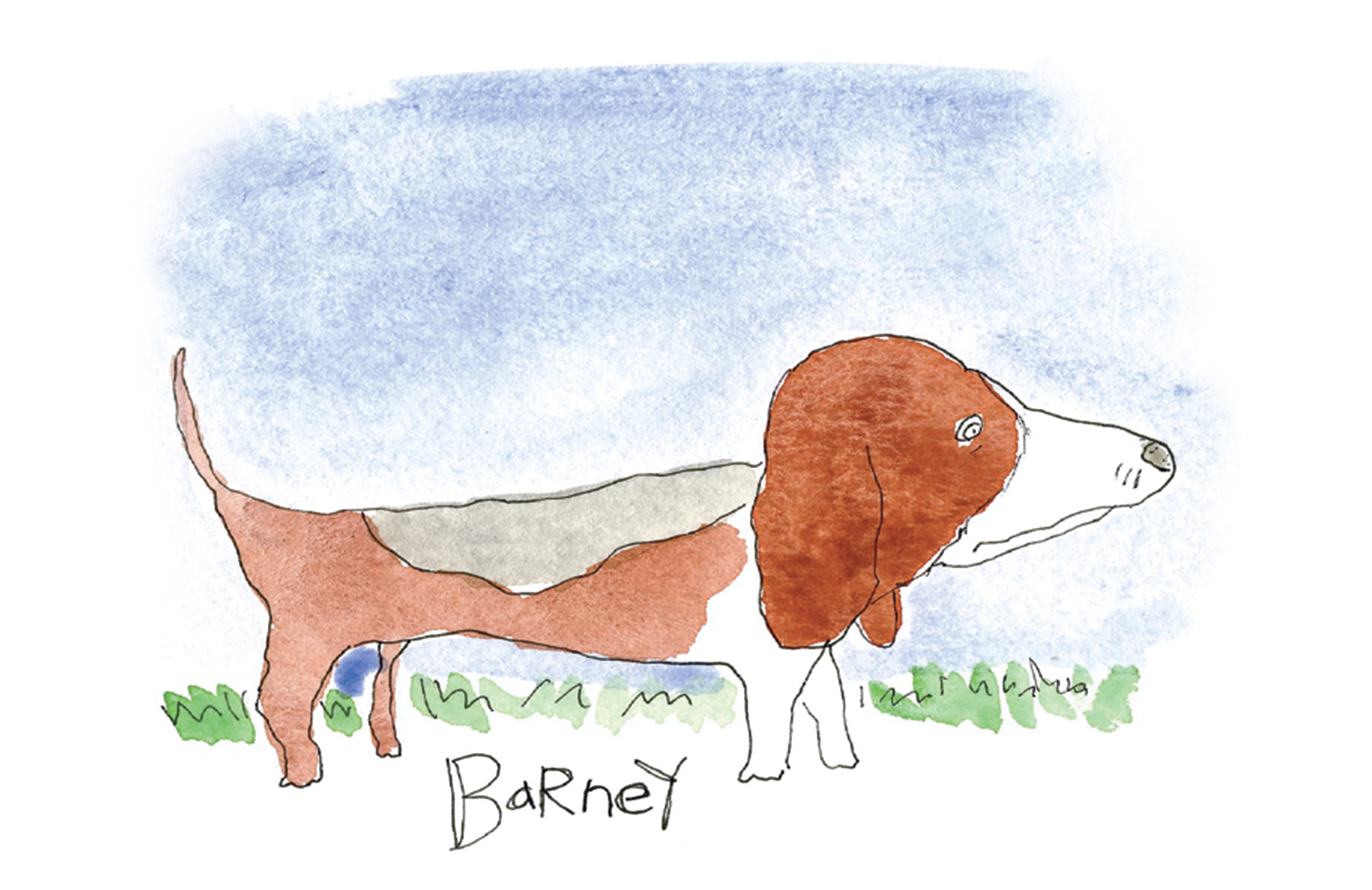
Daniel Wallace
The first dog I named myself was Barney. Barney was a basset hound. Mugsy and Barney are names that operate within the same blatantly descriptive universe, I think. Barney, like most bassets, was a sad-looking dog, a dog with a worried expression, as if he were beset by constant troubles when the reality was that he was cared for and fed free of charge. He’d been fixed. He didn’t have a worry in the world, but you wouldn’t know that by looking at him. Barney is the name we ascribe to a sad man, the difference being that people aren’t born sad, but if they’re given this name out of the womb they will without a doubt become sad. The name dictates the sadness to follow. Dogs benefit from being dogs in that we have a good idea of what they’ll look like and the general characteristics they possess before we give them their names. Naming dogs is a kind of blessing, an affirmation; naming people can be a curse.
One day my sister and I took Barney to a friend’s house, and he wandered out into the woods and disappeared. How far and how fast could a basset hound go? Far enough and fast enough to disappear. We never saw him again.
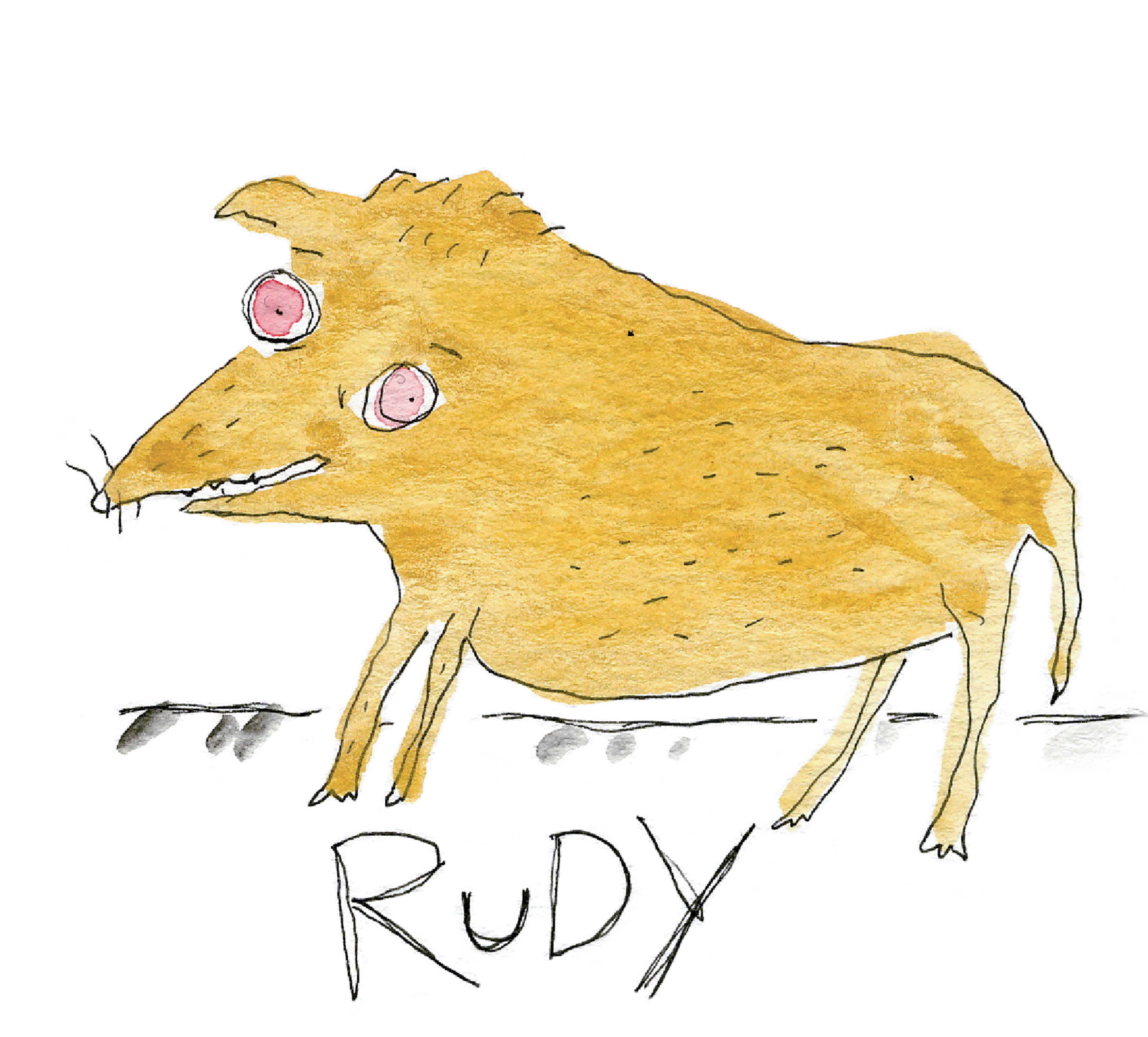
Daniel Wallace
Rudy may have been the most difficult dog of all to name because he didn’t appear to be a dog. Unlike the first two dogs, Rudy was a mixed breed. He looked like he needed more time in the oven. He was that unfortunate combination of canine genetics that ends up—like kids mixing together fifty things they find in the refrigerator—not being much of anything at all.
His big red eyes were so needy, so pitiful, and when he looked at you, it was not love you saw but the last hopeless look of a man falling off a cliff. Maybe you’ll throw me a rope or something? Maybe? No? That’s fine. I didn’t expect you to. He whimpered. He whined. He shivered for no good reason. Women seemed to like Rudy, but it was really just pity. My father hated him. Whenever the poor dog came into the room, he raised a magazine rolled in his hand like a club, threatening, for no reason I could fathom.
I nailed this name. Rudy worked for him. It was perfect.
Then one day he went to live on that same old lady’s farm. That old lady really liked dogs.
When he looked at you, it was not love you saw but the last hopeless look of a man falling off a cliff
When I was fifteen, I got my first real job, working at a veterinary hospital. The guy who owned the hospital bred black-and-tan coon hounds. The summer I worked there a litter was born, and I bought one of the puppies.
After the first three dogs and their generic names, I wanted something different. Something bright and original. The name I came up with was Colonel Mosby. John Singleton Mosby (1833–1916), also known as the Gray Ghost, was a Confederate Partisan Ranger, a guerrilla fighter. He was noted for his ability to go behind enemy lines, do something heroic, then elude his pursuers. This had nothing to do with the dog, of course, but I liked the sound of it: Mosby. It was distinguished, in an odd way, and that’s what Mosby was. Distinguished and odd. Mugsy, Barney, and Rudy were really family dogs, but nobody else could claim Mosby, this elegant and goofy beautiful life. We were the picture of a boy and his dog.
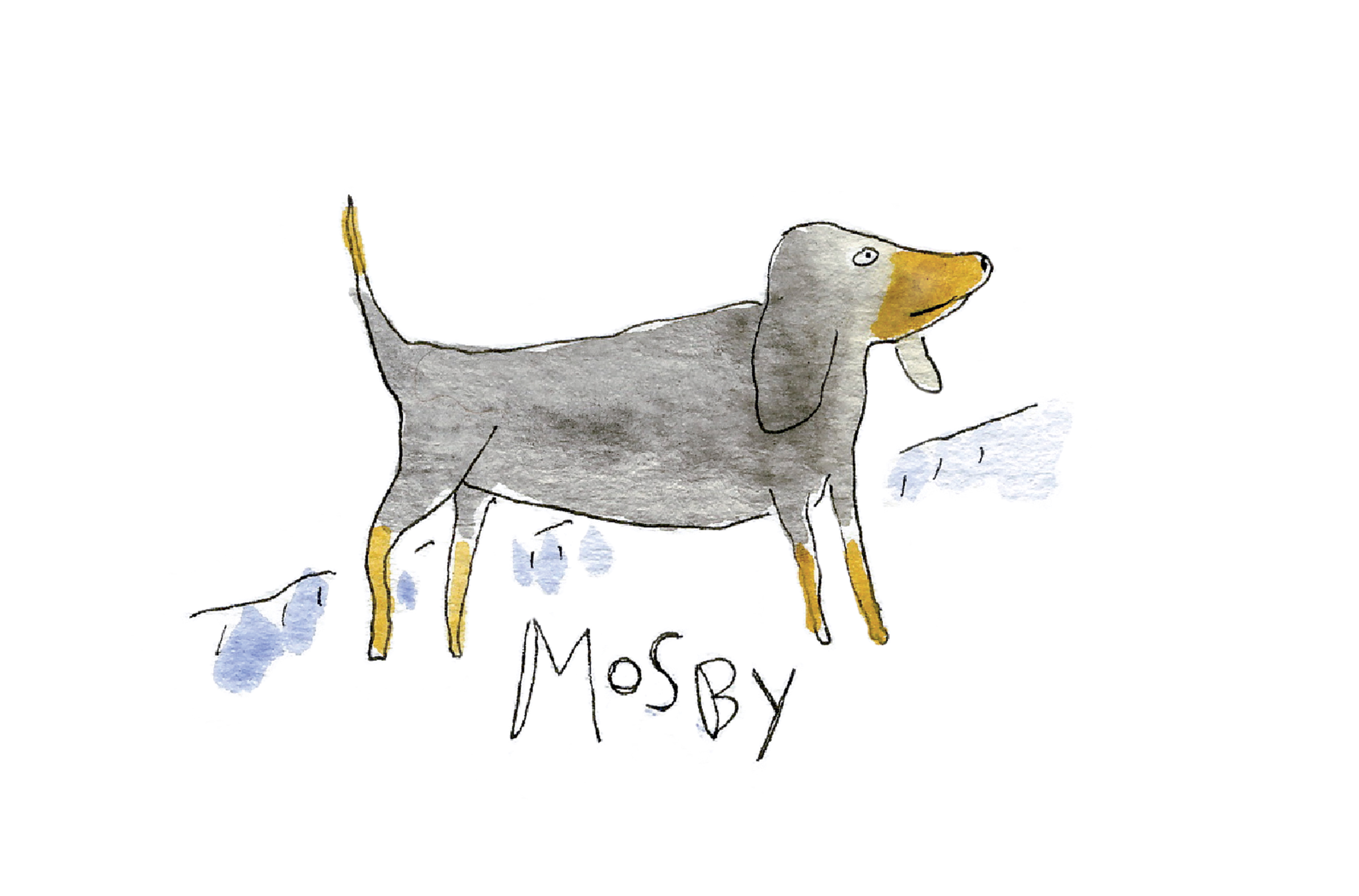
Daniel Wallace
He died, run over after slipping his chain while I was at school, the day before his graduation from obedience school. I found him in the tall grass on the side of the road, carried him home in my arms and buried him in the backyard. The next day my mother wrote me a sweet card. All this time through all these dogs she’d been trying to protect me from the reality of death, and then I saw it, discovered it in the tall grass. There were five twenty-dollar bills in the card, as if in recompense. She said this was the worst thing that would ever happen to me.
It wasn’t.
I was in college in Atlanta before I gave another dog a try. Orsin was an English bulldog, the runt of a litter of six, and claimed that name because of it. Little Orsin, we called him.
Orsin and I shared an apartment with friends who, though wonderful, had no air-conditioning. It was a hot summer. Orsin spent much of his time sleeping in his water bowl. I’d wake up in the middle of the night and take a bath.
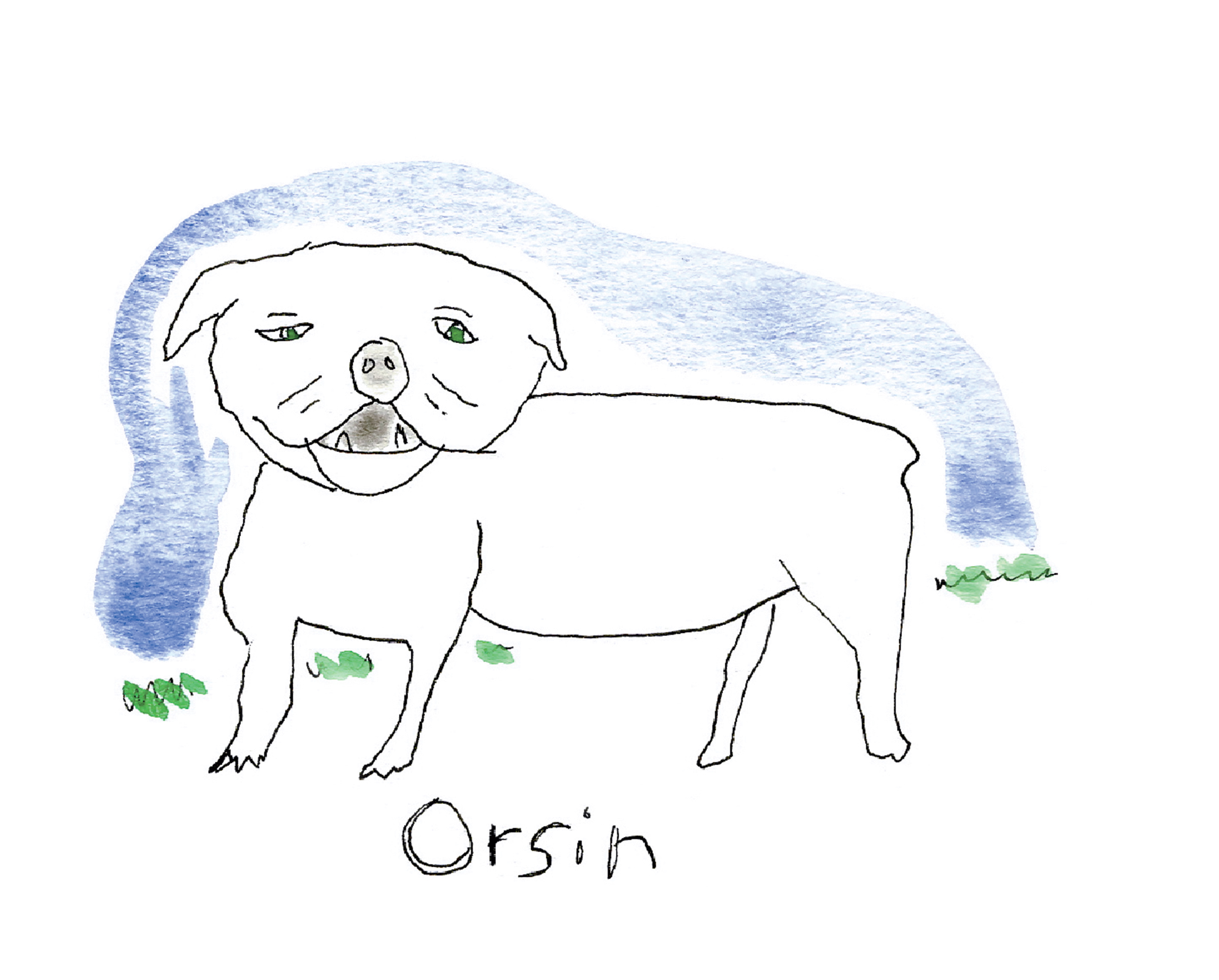
Daniel Wallace
Through the next two years of temporary romances and passing friendships, Orsin was the only constant in my life. We slept together, ate together, were rarely apart. Then I got a job in Japan and had to leave Orsin with my sister. He died before I came back—an aneurysm, they told me. I thought that only happened to people. But after you have a few dogs, you learn: Everything that can happen to people can happen to dogs as well. And they do.
Laura and I were married September 20, 2001. We’d been going out for a couple of years before that, and though we decided not to have kids of our own, getting a dog wasn’t out of the question at all, so we went to the Animal Protection Society to look around for one. It was so sad, all those dogs staring at us as we walked by their sad cages, some of them barking, some growling, some retreating to a corner to whimper. These were dogs you knew no one would ever choose; they would never leave this place, and if any of them had names—and some of them did—they might never hear them again for the rest of their lives.
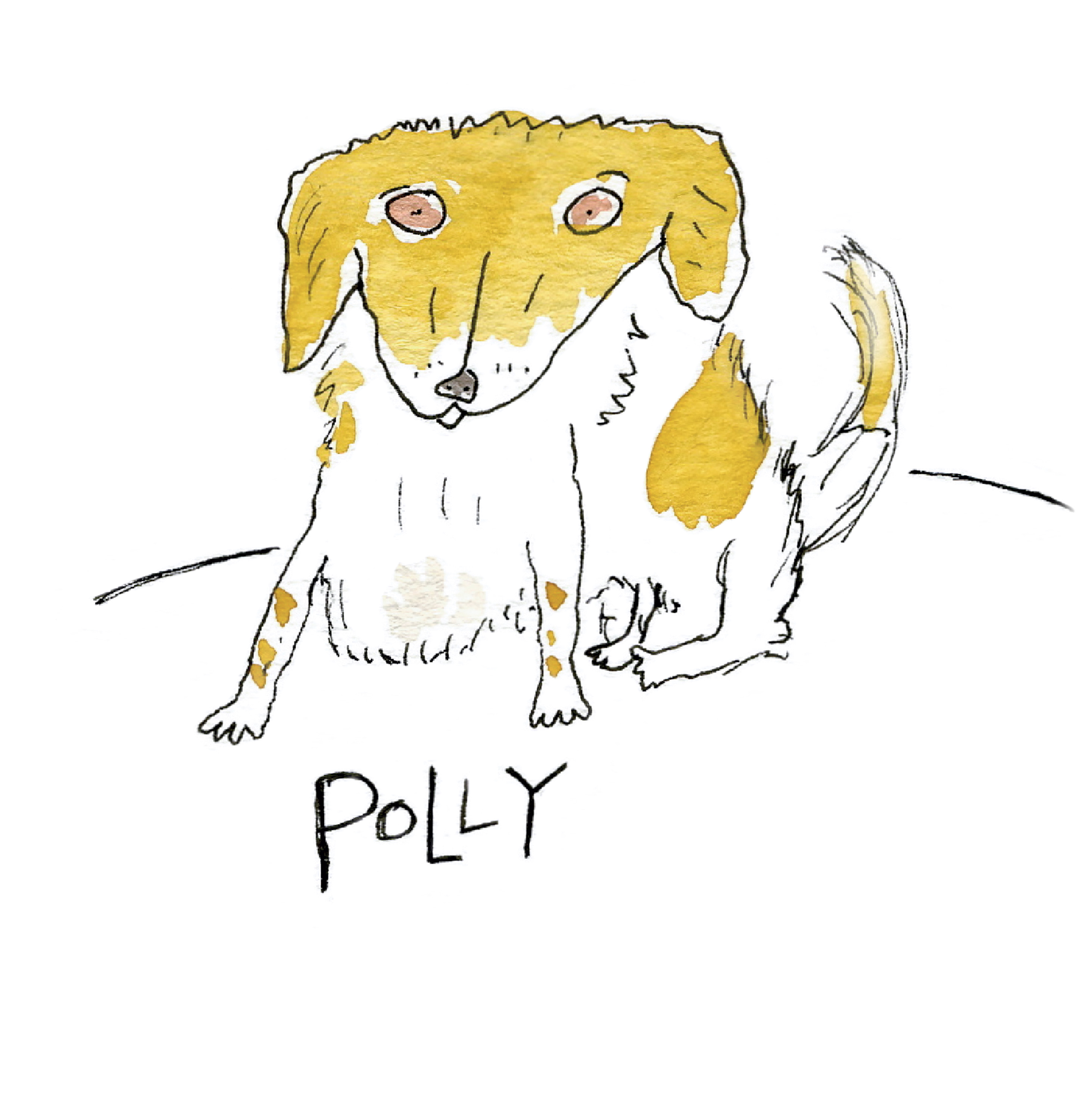
Daniel Wallace
Polly was different. She was about twelve weeks old, a mix of two mystery breeds (though she may have had a little chow in her). She played it cool. She wasn’t over-the-top eager to get out of there, but neither was she altogether shy. She waited until we stopped at her cage and then, somewhat demurely, walked to the wires to get a good look at us. We felt as if we were being studied, and chosen, as much as we were studying and choosing her.
Why Polly? Laura’s sister’s name is Molly, my sister’s name is Holly, and people sometimes call Laura Lolly. So Polly was Polly because she was one of the girls. So sweet she never barked, and she liked to sleep as much as we did. Laura taught her to whisper, the only dog I’ve ever heard of who could do that.
She didn’t live very long. It turned out she had arthritis, hip dysplasia, and an autoimmune disease. It’s been four years and we’re still finding her toys beneath living room chairs, and small pockets of her fine white fur nestled in a corner, like a bed for something very, very small.
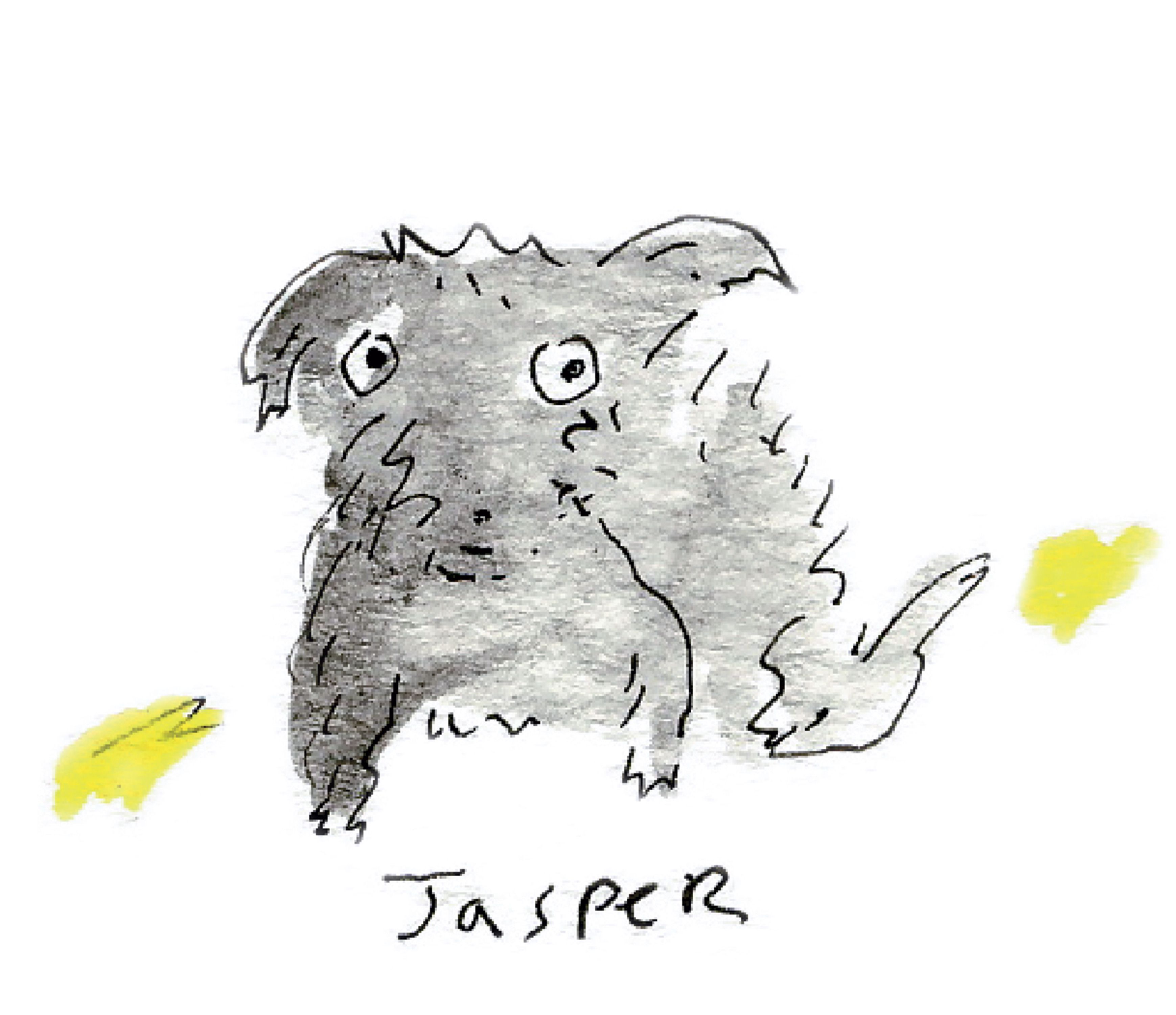
Daniel Wallace
Dogs have been hanging out with people for over ten thousand years. They are empty vessels we fill with a reflection of ourselves; or, alternatively, they come ready-made with their own strong personalities, which, insane as they sometimes are, we accept, because they accept ours. Having a dog is possessing a life, and dogs are in fact like children, but better, because they don’t grow up to rob banks or hate you. They love you the same until they die.
For the dog we have now, a stuffed-animal-look-alike cockapoo, it took us a long time to come up with the right name. It was Hurley for a while, but that didn’t work, and then it was Charlie. Still, we knew that wasn’t his name. His name, it turned out, is Jasper. That’s what we call him, and when we call him, he comes. Sometimes.


